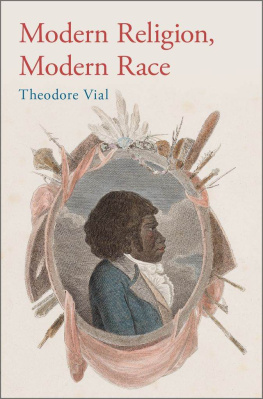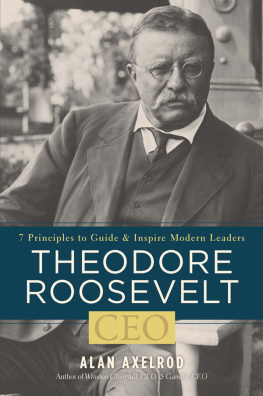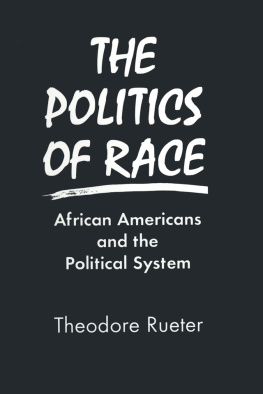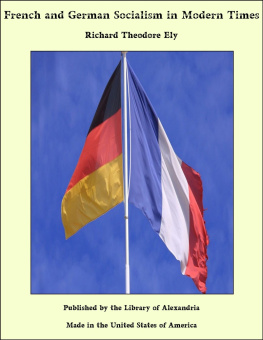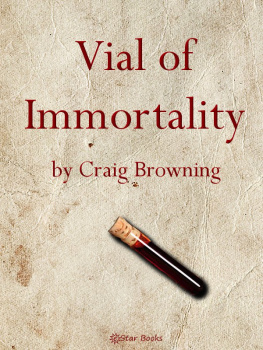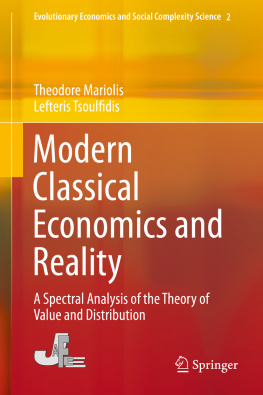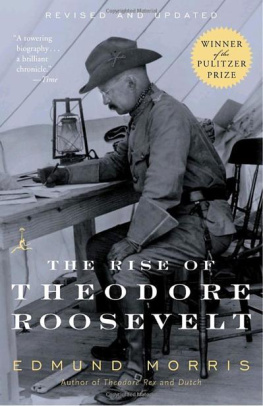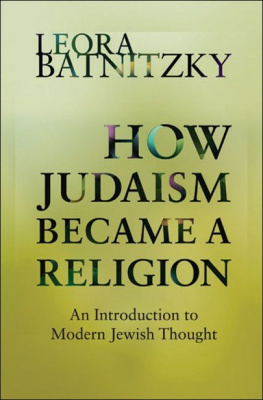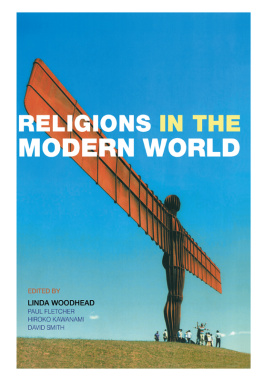Theodore Vial - Modern Religion, Modern Race
Here you can read online Theodore Vial - Modern Religion, Modern Race full text of the book (entire story) in english for free. Download pdf and epub, get meaning, cover and reviews about this ebook. year: 2016, publisher: Oxford University Press, genre: Religion. Description of the work, (preface) as well as reviews are available. Best literature library LitArk.com created for fans of good reading and offers a wide selection of genres:
Romance novel
Science fiction
Adventure
Detective
Science
History
Home and family
Prose
Art
Politics
Computer
Non-fiction
Religion
Business
Children
Humor
Choose a favorite category and find really read worthwhile books. Enjoy immersion in the world of imagination, feel the emotions of the characters or learn something new for yourself, make an fascinating discovery.
- Book:Modern Religion, Modern Race
- Author:
- Publisher:Oxford University Press
- Genre:
- Year:2016
- Rating:3 / 5
- Favourites:Add to favourites
- Your mark:
- 60
- 1
- 2
- 3
- 4
- 5
Modern Religion, Modern Race: summary, description and annotation
We offer to read an annotation, description, summary or preface (depends on what the author of the book "Modern Religion, Modern Race" wrote himself). If you haven't found the necessary information about the book — write in the comments, we will try to find it.
Modern Religion, Modern Race — read online for free the complete book (whole text) full work
Below is the text of the book, divided by pages. System saving the place of the last page read, allows you to conveniently read the book "Modern Religion, Modern Race" online for free, without having to search again every time where you left off. Put a bookmark, and you can go to the page where you finished reading at any time.
Font size:
Interval:
Bookmark:

THEODORE VIAL


Oxford University Press is a department of the University of Oxford. It furthers the Universitys objective of excellence in research, scholarship, and education by publishing worldwide. Oxford is a registered trade mark of Oxford University Press in the UK and certain other countries.
Published in the United States of America by Oxford University Press
198 Madison Avenue, New York, NY 10016, United States of America.
Oxford University Press 2016
All rights reserved. No part of this publication may be reproduced, stored in a retrieval system, or transmitted, in any form or by any means, without the prior permission in writing of Oxford University Press, or as expressly permitted by law, by license, or under terms agreed with the appropriate reproduction rights organization. Inquiries concerning reproduction outside the scope of the above should be sent to the Rights Department, Oxford University Press, at the address above.
You must not circulate this work in any other form and you must impose this same condition on any acquirer.
Library of Congress Cataloging-in-Publication Data
Names: Vial, Theodore M., 1962 author.
Title: Modern religion, modern race / Theodore Vial.
Description: New York : Oxford University Press, 2016. | Includes bibliographical references and index. | Description based on print version record and CIP data provided by publisher; resource not viewed.
Identifiers: LCCN 2016013110 (print) | LCCN 2015044392 (ebook) |
ISBN 9780190212568 (updf) | ISBN 9780190212551 (cloth : alk. paper) | eISBN 9780190621964
Subjects: LCSH: RaceReligious aspects. | Religion. | Race.
Classification: LCC BL65.R3 (print) | LCC BL65.R3 V53 2016 (ebook) | DDC 200.89dc23
LC record available at http://lccn.loc.gov/2016013110
For Nancy
[W]hat is commonly assumed to be past history is actually as much a part of the living present as William Faulkner insisted. Furtive, implacable and tricky, it inspirits both the observer and the scene observed, artifacts, manners and atmosphere and it speaks even when no one wills to listen.
RALPH ELLISON, Introduction, Invisible Man (New York: Vintage, 1991), xvi
THIS PROJECT BEGAN to take its current shape in 2007 when the faculty of color at Iliff proposed a joint project to the faculty as a whole: each of us would look at the history of our subdisciplines in the academic study of religions and theology on the topic of race. At the time my main institutional home at the American Academy of Religion was the Nineteenth-Century Theology Group. A review of its records showed that there had never been a panel or paper explicitly addressing nineteenth-century theology and race. In the fall of 2008 the Iliff faculty suffered through an early and inadequate paper I prepared for our faculty retreat. I would like to thank the faculty for providing the environment for this research and for responding to three chapters in various stages of development at three separate faculty colloquia. I would like to thank the faculty of color at Iliff for sending me down the path of this research project, and all my colleagues for helping Iliff to work through some of the issues I raise in this book.
My research assistant Tracy Temple tracked down and obtained the permissions for the image of Bennilong. Iliffs Dean, Albert Hernndez, provided generous funding for the images, as well as an excellent research environment. Will Wedow, in Iliffs amazing IT department, saved my bacon at least twice.
Several years ago I joined a faculty writing group, and the fact that I have a completed manuscript is due, in large part, to the encouragement, criticism, and deadlines of Pam Eisenbaum, Mark George, and Jacob Kinnard. Having waded through at least three versions of every part of this manuscript, I wonder if they are having second thoughts about forming the group.
Sheila Davaney retired from Iliff early in the life of this project to go to the Ford Foundation. But she has remained willing to read the whole manuscript, and has played a large role in shaping the argument and articulating it clearly, including the very order of the chapters.
Edward Antonio has read the manuscript at least twice, and has been an insightful conversation partner over the years about the ideas I try to articulate here.
I have received invaluable comments from students in two classes. The masters and PhD students in my fall 2011 Religion and Race class read a very early version of the manuscript. The PhD students (and one masters student, just for fun) in my winter 2015 Schleiermacher as Resource for Contemporary Theology read a more polished version. It is not easy responding to the work of the person grading you. I thank these students for the classroom conversations and for their comments on the manuscript. In particular Joshua Bartholomew, Robyn Henderson-Espinoza, Kerry Holton, Benjamin Peters, Anthony Roberts, Ben Sanders, Dave Scott, Brandon Stark, and Jared Vazquez gave helpful criticism and engaged in useful conversations over the years. Sarah Scherer read the manuscript though she was not in these classes. An important part of my argument in clicked for me in a conversation with Mary Ragan.
I am constantly surprised and humbled by the willingness of colleagues at other institutions to invest valuable time and brain cells to help others improve their work. They do this for no reason other than a commitment to good scholarship. Terry Godlove and Wayne Proudfoot gave helpful comments on . My argument is on much firmer grounds because of them. There are important topics on which I still have disagreements with each of them, so flaws in that chapter should not be laid at their feet. I look forward to continuing conversations.
Mark Mikkelsen (Jon), one of the leading scholars on Kant and race, responded to the academic equivalent of a cold call with five single spaced pages of comments and suggestions on . He helped me frame what I was and was not claiming about Kant, and saved me from some embarrassing errors. I am deeply grateful. I know there are aspects of that chapter with which he will still disagree (including the need for a chapter on Kant and race at all). I hope I have not disappointed him too much.
Oxford University Press sent several chapters to anonymous readers (I have a hunch who one of them is). Their comments helped me revise the manuscript into a much better, more complete, and more thoroughly documented argument.
One could not ask for a better editor than Cynthia Read. Her experience, insight, and efficiency have made this a better book. She is also patient.
James Forman took time from his own deadline for a book on race and the legal system to comment on my Introduction. It is much more balanced and clear because of his generosity and insight. A long conversation with him, Dimitri Christakis, and Evan Westerfield, who also read the Introduction simply because they are good friends, helped me articulate my general argument more strongly.
Nancy Walsh read two versions of the Introduction, helping me to say what I meant much more concisely. She saved me from oversights, errors, and clunky language. She saved you from a long, tedious version. Talking through the issues raised in this book, often when we were not explicitly talking about this book, has shaped my thinking and arguments to a very great extent.
Font size:
Interval:
Bookmark:
Similar books «Modern Religion, Modern Race»
Look at similar books to Modern Religion, Modern Race. We have selected literature similar in name and meaning in the hope of providing readers with more options to find new, interesting, not yet read works.
Discussion, reviews of the book Modern Religion, Modern Race and just readers' own opinions. Leave your comments, write what you think about the work, its meaning or the main characters. Specify what exactly you liked and what you didn't like, and why you think so.

